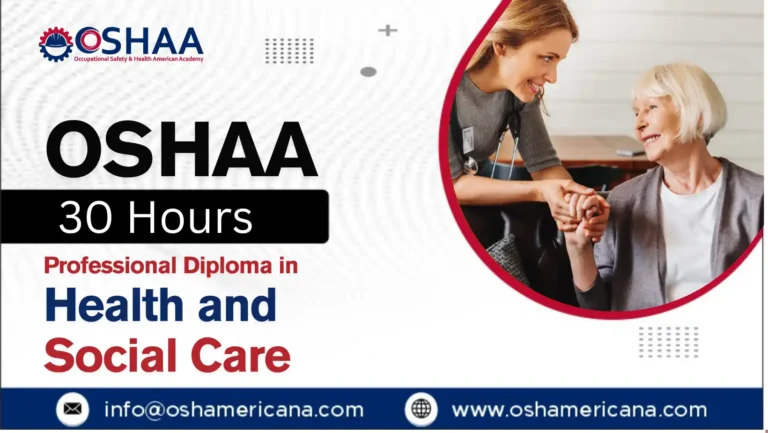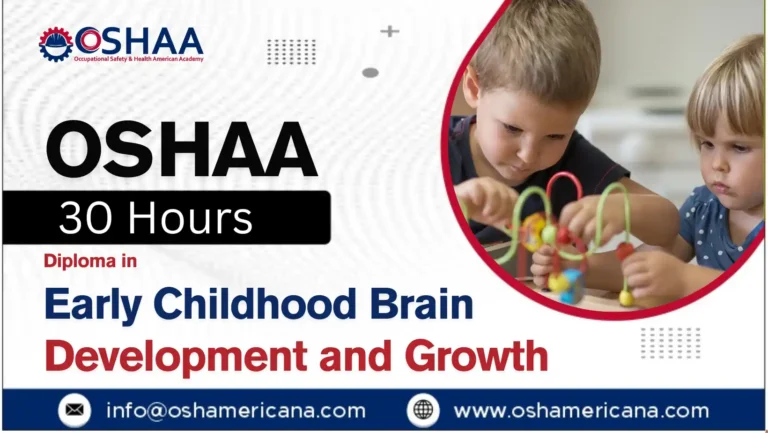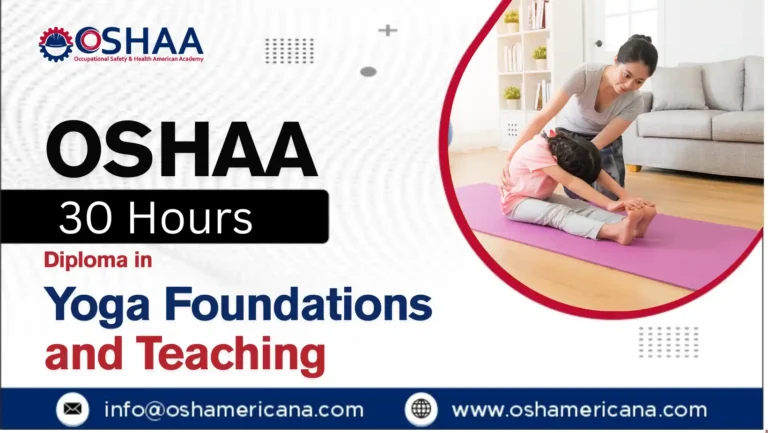Advance your career with the OSHAA 30-Hours Essentials of Advanced Life Support (ALS) course. Gain critical skills to manage emergencies and save lives.
The OSHAA 30-Hours Essentials of Advanced Life Support (ALS) course is a comprehensive training program designed to prepare healthcare professionals to respond effectively in life-threatening emergencies. In the healthcare industry, the ability to provide immediate and advanced life support can mean the difference between life and death. This specialized course equips doctors, nurses, paramedics, and other medical practitioners with the advanced knowledge and practical skills required to manage patients in critical conditions, ensuring compliance with international safety standards and enhancing professional competence.
Advanced Life Support (ALS) encompasses a set of evidence-based medical procedures used to stabilize patients experiencing severe emergencies such as cardiac arrest, respiratory failure, shock, and other critical conditions. Unlike Basic Life Support (BLS), which focuses on fundamental interventions like CPR, ALS incorporates advanced airway management, intravenous access, drug administration, and continuous monitoring of vital signs. The primary goal of ALS is to sustain vital organ function and stabilize the patient until definitive medical treatment can be provided. The OSHAA 30-Hours Essentials of Advanced Life Support (ALS) course ensures that participants master these advanced techniques while adhering to regulatory and safety guidelines.
This program emphasizes both theoretical knowledge and practical, hands-on training. Learners are guided through real-world scenarios that simulate high-pressure medical emergencies, enabling them to build confidence and competence in applying ALS protocols. The OSHAA 30-Hours Essentials of Advanced Life Support (ALS) course is particularly relevant for professionals working in emergency departments, intensive care units, and pre-hospital care environments where rapid decision-making and advanced interventions are critical. By completing this training, participants not only strengthen their ability to deliver life-saving care but also enhance patient outcomes and reduce risks associated with delayed or inadequate response.
The course also highlights the importance of regulatory compliance and workplace safety in healthcare environments. By aligning with OSHA standards and international best practices, the OSHAA 30-Hours Essentials of Advanced Life Support (ALS) course ensures that professionals are prepared to meet both clinical and legal responsibilities. This compliance-driven approach protects patients, supports healthcare institutions, and enhances the credibility of practitioners who complete the program.
For healthcare professionals seeking to expand their expertise, update their qualifications, or advance their careers, the OSHAA 30-Hours Essentials of Advanced Life Support (ALS) course is an invaluable investment. It provides the advanced skills necessary to manage complex emergencies, reinforces professional development, and ensures readiness to deliver high-quality care in critical situations. By mastering ALS techniques through this structured training, participants are empowered to save lives, improve patient safety, and contribute to the overall excellence of healthcare delivery.
The OSHAA 30-Hours Essentials of Advanced Life Support (ALS) course is more than just a certification; it is a professional commitment to excellence, compliance, and patient-centered care. With its focus on advanced clinical skills, regulatory alignment, and practical application, this program is an essential step for any healthcare professional dedicated to improving outcomes and ensuring the highest standards of emergency medical care.
OSHAA 30-Hours Essentials of Advanced Life Support (ALS)
To enroll in the OSHAA 30-Hours Essentials of Advanced Life Support (ALS) course, learners are expected to meet the following criteria:
- Age Requirement
- Applicants must be at least 18 years of age to register for the OSHAA 30-Hours Essentials of Advanced Life Support (ALS) course. This minimum age requirement ensures that participants possess the maturity, responsibility, and professional readiness needed to engage with advanced medical training. Meeting this standard guarantees that learners are prepared to apply life-saving techniques in high-pressure clinical and emergency care environments.
- Educational Background
- A high school diploma or equivalent is recommended as the minimum educational qualification for enrollment in the OSHAA 30-Hours Essentials of Advanced Life Support (ALS) course. While this provides sufficient preparation, individuals with higher education in nursing, medicine, paramedicine, or other healthcare-related fields will find the course particularly advantageous. Advanced academic backgrounds allow learners to integrate ALS principles more effectively, but the program is structured to be accessible to all healthcare professionals committed to improving emergency response and patient outcomes.
- Work Experience
- Prior professional experience in healthcare or emergency response is not mandatory to enroll in the OSHAA 30-Hours Essentials of Advanced Life Support (ALS) course. However, individuals currently working as doctors, nurses, paramedics, or allied health professionals will benefit from the immediate application of the course content in their daily practice. For those new to advanced emergency care, the program provides a strong foundation in life support protocols, airway management, and cardiac emergency interventions, making it an excellent entry point into specialized medical training.
- English Proficiency
- Learners must be able to read, write, and speak English fluently to successfully complete the OSHAA 30-Hours Essentials of Advanced Life Support (ALS) course. Proficiency in English is essential for understanding course materials, engaging with case studies, and applying regulatory requirements in professional practice. Since the course emphasizes compliance with OSHA standards, advanced medical terminology, and evidence-based interventions, strong English communication skills ensure that participants can fully comprehend the training and implement best practices effectively in diverse healthcare settings.
The eligibility requirements for the OSHAA 30-Hours Essentials of Advanced Life Support (ALS) course are designed to ensure that participants are fully prepared to engage with the program’s comprehensive content and apply its principles in real-world clinical contexts. By meeting these criteria, learners can maximize the benefits of this specialized training, strengthen their professional development, and contribute to safer, more effective emergency care environments. This makes the OSHAA 30-Hours Essentials of Advanced Life Support (ALS) course an essential step for healthcare professionals and organizations dedicated to excellence in patient safety, regulatory compliance, and advanced life-saving interventions.
Study Units
Learning Outcomes
Learning Outcomes for Each Study Unit
Introduction to Advanced Life Support (2 Hours)
- Understand the key principles and importance of Advanced Life Support (ALS) in emergency care.
- Differentiate between Basic Life Support (BLS) and ALS, and know when to transition from BLS to ALS.
- Identify ALS protocols and resuscitation algorithms for various critical situations.
- Comprehend the roles and responsibilities of healthcare professionals during ALS interventions.
Airway Management and Ventilation (5 Hours)
- Demonstrate the ability to manage a patient’s airway using advanced techniques such as intubation and supraglottic airways.
- Understand the indications and methods for positive pressure ventilation, including bag-valve mask techniques.
- Identify and troubleshoot common complications in airway management.
- Apply effective ventilation strategies in both adult and paediatric patients during respiratory emergencies.
Cardiac Arrest and Defibrillation (5 Hours)
- Recognise and interpret various cardiac rhythms, including those requiring defibrillation.
- Perform defibrillation using both automated external defibrillators (AED) and manual defibrillators.
- Understand the proper use of pharmacological interventions during cardiac arrest.
- Follow resuscitation protocols for adult and paediatric patients in cardiac arrest situations.
- Comprehend the post-defibrillation care required for patient stability.
Advanced Pharmacology in ALS (3 Hours)
- Understand the pharmacology of key medications used in ALS, including antiarrhythmics, vasopressors, and sedatives.
- Know the indications, contraindications, and administration routes for critical ALS medications.
- Recognise the timing and dosing strategies for medication administration in emergencies.
- Identify potential drug-related complications and manage them appropriately.
Monitoring and Assessment Techniques (3 Hours)
- Demonstrate the ability to use advanced monitoring equipment, including ECG, capnography, and pulse oximetry.
- Interpret vital signs and lab results to assess patient status in critical situations.
- Continuously monitor and reassess patients during resuscitation and stabilization efforts.
- Apply critical thinking skills to adjust patient care based on real-time monitoring data.
Advanced Resuscitation Techniques (5 Hours)
- Apply advanced resuscitation techniques to manage cardiac arrest, respiratory failure, and shock in adult and paediatric patients.
- Understand the protocols for performing high-quality CPR and post-cardiac arrest care.
- Implement appropriate interventions for multi-system organ failure during resuscitation efforts.
- Demonstrate teamwork and coordination in delivering advanced resuscitation care in emergency situations.
Post-Resuscitation Care (3 Hours)
- Understand the importance of post-resuscitation care in improving patient outcomes.
- Identify strategies for monitoring and managing circulation and respiratory function post-resuscitation.
- Comprehend the role of neurological assessments and interventions after successful resuscitation.
- Implement post-resuscitation care plans to reduce the risk of organ dysfunction and enhance recovery.
Teamwork, Communication, and Leadership in ALS (3 Hours)
- Develop effective communication skills to manage teams during resuscitation and critical care situations.
- Understand the role of the ALS leader and practice delegating tasks in high-stress environments.
- Collaborate with a multi-disciplinary team to ensure coordinated and efficient emergency care.
- Strengthen decision-making skills under pressure and maintain clarity during crisis situations.
The OSHAA 30-Hours Essentials of Advanced Life Support (ALS) course provides a wide range of benefits for healthcare professionals, organizations, and stakeholders committed to excellence in emergency medical care. This program is globally relevant, equipping participants with advanced clinical skills, regulatory compliance knowledge, and professional development opportunities that directly impact patient safety and organizational performance. By focusing on evidence-based practices, workplace safety, and international standards, the course ensures that learners are prepared to deliver life-saving interventions in critical situations while enhancing their professional credibility and career growth.
- Comprehensive Knowledge of Advanced Life Support
- Participants gain an in-depth understanding of ALS protocols, including airway management, cardiac monitoring, and drug administration. This knowledge ensures effective patient stabilization in life-threatening emergencies.
- Regulatory Compliance and Legal Protection
- The OSHAA 30-Hours Essentials of Advanced Life Support (ALS) course emphasizes compliance with OSHA standards and international healthcare regulations. This protects professionals and organizations from legal risks while ensuring patient safety.
- Enhanced Emergency Response Skills
- Learners develop the ability to respond quickly and effectively to cardiac arrest, respiratory failure, and shock. These advanced skills improve patient outcomes and reduce mortality rates in critical care settings.
- Professional Development and Career Advancement
- Completing this course strengthens professional credibility and opens opportunities for advancement in emergency medicine, critical care, and pre-hospital services. Certification demonstrates expertise in ALS protocols.
- Improved Workplace Safety and Risk Reduction
- By mastering ALS techniques, healthcare teams reduce the risks associated with delayed or inadequate emergency response. This fosters safer clinical environments for both patients and staff.
- Operational Efficiency and Cost Savings
- Effective ALS training minimizes complications, reduces hospital stays, and lowers the costs associated with emergency interventions. Organizations benefit from improved efficiency and resource management.
- Leadership and Team Coordination Skills
- The course equips participants with leadership and communication strategies essential for managing emergency teams. Strong coordination ensures that ALS protocols are applied consistently and effectively.
- Confidence in High-Pressure Situations
- Learners build confidence in handling complex emergencies, enabling them to make rapid, evidence-based decisions under pressure. This confidence directly improves patient care and safety.
- Global Relevance and Applicability
- The OSHAA 30-Hours Essentials of Advanced Life Support (ALS) course is recognized internationally, making it valuable for professionals seeking career opportunities across global healthcare systems.
- Emergency Preparedness and Risk Management
- Participants are trained to anticipate, identify, and manage risks in emergency care. This preparedness ensures quick, compliant, and effective responses to critical incidents.
- Continuous Improvement and Innovation
- The course fosters a culture of ongoing learning, encouraging professionals to stay updated with evolving ALS guidelines and innovative emergency care practices.
- Enhanced Patient Outcomes
- By applying advanced life support techniques, healthcare professionals improve survival rates, reduce complications, and enhance overall patient recovery.
- Institutional Excellence and Reputation
- Healthcare organizations that invest in ALS training demonstrate a commitment to safety, compliance, and high-quality care, strengthening their reputation and competitive advantage.
- Legal and Ethical Assurance
- Proper ALS training ensures that interventions are performed ethically and in compliance with medical regulations, reducing liability and reinforcing professional accountability.
- Sustainable Professional Growth
- The OSHAA 30-Hours Essentials of Advanced Life Support (ALS) course provides long-term value by equipping professionals with transferable skills that remain relevant across diverse healthcare environments.
The OSHAA 30-Hours Essentials of Advanced Life Support (ALS) course is more than a certification—it is a professional investment in safety, compliance, and clinical excellence. By completing this program, participants gain advanced knowledge, practical skills, and recognized credentials that enhance their careers while ensuring safer, more effective emergency care. This makes the OSHAA 30-Hours Essentials of Advanced Life Support (ALS) course an essential step for healthcare professionals and organizations dedicated to improving patient outcomes and achieving the highest standards in emergency medical practice.
The OSHAA 30-Hours Essentials of Advanced Life Support (ALS) course is designed for healthcare professionals, organizations, and stakeholders who are directly involved in emergency medical care, critical care, and patient safety management. This program is highly relevant for doctors, nurses, paramedics, and allied health professionals who must respond to life-threatening emergencies with precision and compliance. With global importance, the course aligns with OSHA standards and international healthcare regulations, making it a vital professional development opportunity for individuals and institutions committed to excellence in advanced life support, workplace safety, and regulatory compliance.
- Doctors and Physicians
- Serve as primary decision-makers in emergency and critical care settings.
- The OSHAA 30-Hours Essentials of Advanced Life Support (ALS) course enhances their ability to manage cardiac arrest, respiratory failure, and shock.
- Physicians gain advanced skills in airway management, drug administration, and patient stabilization.
- Training ensures compliance with OSHA standards while improving patient outcomes and operational efficiency.
- Nurses and Critical Care Staff
- Provide frontline care in hospitals, intensive care units, and emergency departments.
- This course equips them with advanced life support techniques beyond basic CPR.
- Nurses gain confidence in handling high-pressure emergencies and supporting physicians.
- Certification ensures compliance with workplace safety standards and strengthens professional credibility.
- Paramedics and Emergency Medical Technicians (EMTs)
- Respond to pre-hospital emergencies and provide immediate life-saving interventions.
- The OSHAA 30-Hours Essentials of Advanced Life Support (ALS) course enhances their ability to deliver advanced care in the field.
- Paramedics gain expertise in intravenous therapy, advanced monitoring, and rapid stabilization.
- Training supports OSHA compliance and improves emergency response efficiency.
- Healthcare Administrators and Managers
- Oversee hospital operations, compliance, and staff training.
- This course helps them ensure that teams are properly trained in ALS protocols.
- Administrators gain insights into risk management, regulatory compliance, and patient safety.
- Certification supports organizational excellence and reduces liability risks.
- Medical Students and Trainees
- Preparing for careers in healthcare and emergency medicine.
- The OSHAA 30-Hours Essentials of Advanced Life Support (ALS) course provides foundational ALS knowledge.
- Students gain practical skills that enhance their readiness for clinical practice.
- Training ensures early compliance with OSHA standards and builds professional competence.
- Military and Disaster Response Teams
- Operate in high-risk environments where advanced life support is critical.
- This course equips them with the skills to manage trauma and medical emergencies in the field.
- Teams gain confidence in applying ALS protocols under extreme conditions.
- Certification ensures compliance with safety standards and enhances mission readiness.
- Health and Safety Officers
- Monitor workplace safety and ensure compliance with OSHA healthcare regulations.
- The OSHAA 30-Hours Essentials of Advanced Life Support (ALS) course provides specialized knowledge of emergency medical protocols.
- Officers gain skills to oversee training programs and enforce compliance.
- Training strengthens their role in maintaining safe and compliant healthcare environments.
- International Healthcare Professionals
- Work in global healthcare systems where OSHA standards and ALS protocols are recognized.
- This course provides universally applicable training in advanced life support.
- Learners enhance their employability and career mobility across international markets.
- Certification demonstrates global compliance with workplace safety and healthcare standards.
- Emergency Response Coordinators
- Manage hospital and community emergency preparedness programs.
- The OSHAA 30-Hours Essentials of Advanced Life Support (ALS) course equips them with tools to design effective response strategies.
- Coordinators gain expertise in risk management, crisis planning, and staff training.
- Training ensures compliance with OSHA regulations and enhances organizational resilience.
- Allied Health Professionals
- Include respiratory therapists, anesthetists, and other specialists supporting critical care.
- This course enhances their ability to contribute effectively during emergencies.
- Professionals gain advanced knowledge of ALS procedures relevant to their roles.
- Certification ensures compliance with safety standards and strengthens interdisciplinary collaboration.
The OSHAA 30-Hours Essentials of Advanced Life Support (ALS) course equips participants across all roles with advanced knowledge, professional skills, and recognized certification to enhance safety, compliance, and operational excellence in healthcare. By addressing the needs of doctors, nurses, paramedics, administrators, and international professionals, this program ensures that every participant is prepared to meet OSHA requirements, reduce risks, and deliver high-quality emergency care. The OSHAA 30-Hours Essentials of Advanced Life Support (ALS) course is a globally relevant and career-defining training opportunity for professionals and organizations dedicated to excellence in patient safety, regulatory compliance, and advanced medical practice.







